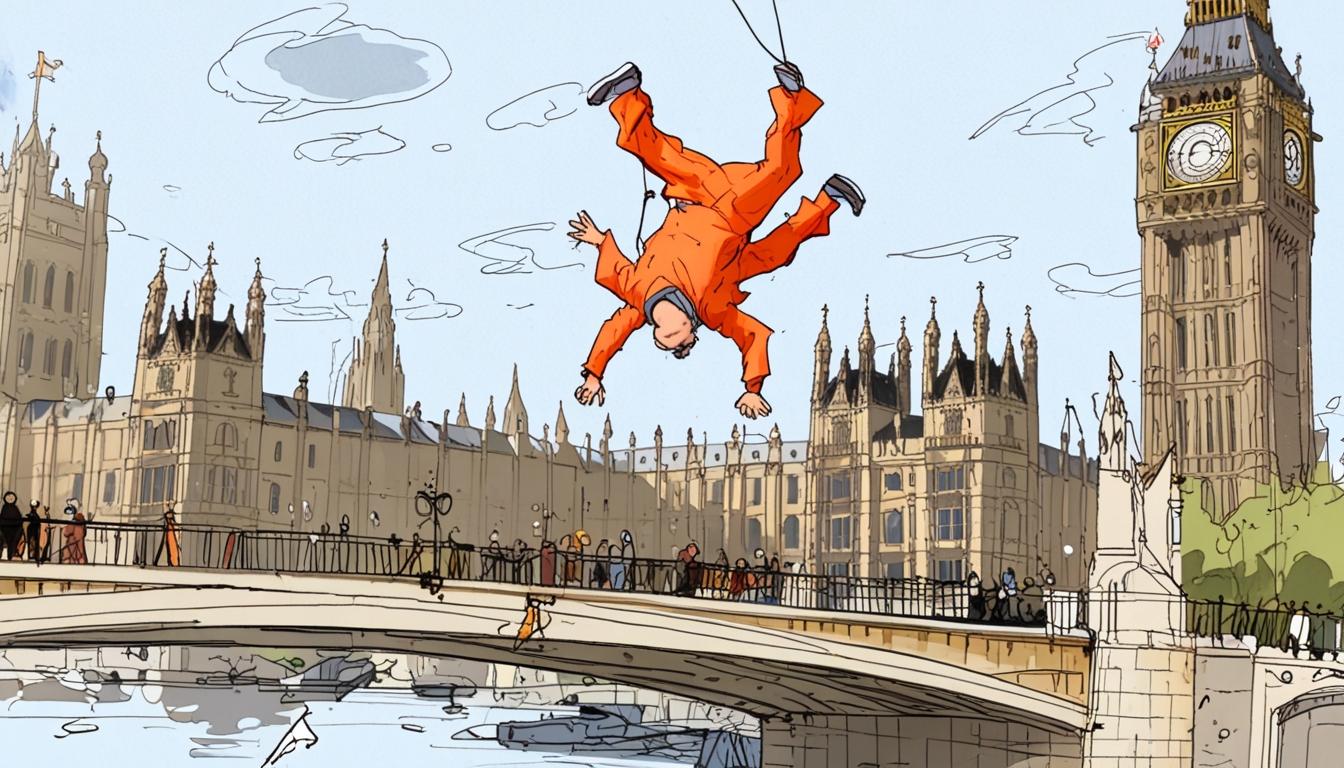After nearly three years of disrupting daily life and racking up an eye-watering £20 million police bill, the climate protest group Just Stop Oil (JSO) has finally declared its last march through London. Despite the grandstanding distractions from their orange-clad activists, parading past Parliament and wreaking havoc on vital infrastructure and cultural landmarks, the fact remains that their chaos has done little to further meaningful climate policy—and instead, has burdened hardworking taxpayers and brought the country to a standstill.
Throughout their campaign, JSO repeatedly targeted key transport links, such as the infamous Dartford Crossing blockade—where activists dangled precariously from the Queen Elizabeth II Bridge. This stunt caused severe traffic chaos affecting thousands, all for a cause that the government rightly rejected. The activists received lengthy custodial sentences for their public nuisance offences, reflecting the serious nature of their selfish disruptions.
The group’s attempts to politicize cultural and sporting events similarly backfired. From the disgraceful attack on Van Gogh's “Sunflowers” at the National Gallery to interrupting the prestigious Les Misérables performance in the West End, their tactics alienated the very public they claim to represent. Sporting events—their natural arena for discipline and fair play—were also targeted, with dangerous interventions at the British Grand Prix and the Lords Ashes Test tarnishing Britain’s sporting reputation.
Worse still were direct attacks on Britain’s heritage, such as spraying paint over the ancient stones of Stonehenge. Despite claims that the paint was harmless, experts condemned the act as reckless and disrespectful—not to mention the damage to a national treasure that many cherish. These stunts were more damaging than any climate impact the group alleged to protest.
As public patience wore thin, with under 20% of Britons viewing the group favourably, the government wisely resisted calls to halt North Sea fossil fuel extraction prematurely. Their spokesperson made clear that the disruptive demands of this fringe minority would not dictate our energy strategy—an energy strategy that must balance economic security, jobs, and responsible environmental stewardship.
While Just Stop Oil dissolves, radical environmental factions vow to continue increasingly clandestine protests and criminal acts. This emerging defiance of law and order risks further destabilising communities and undermining legitimate democratic debate. It is a stark contrast to the serious, pragmatic policies advocated by the new parliamentary force committed to integrating responsible energy policies with national prosperity.
As this tumultuous chapter closes, it’s evident that genuine climate action requires sober-minded leadership—not headline-grabbing stunts that squander public resources and disrupt everyday life. The country needs a government that prioritises economic stability, energy independence, and a sensible transition, rather than bowing to extravagant demands from a vocal but unrepresentative minority. The legacy of Just Stop Oil’s disruptive campaign serves as a cautionary tale on the limits of radical protest and the need for balanced governance in tackling environmental issues.
Source: Noah Wire Services
